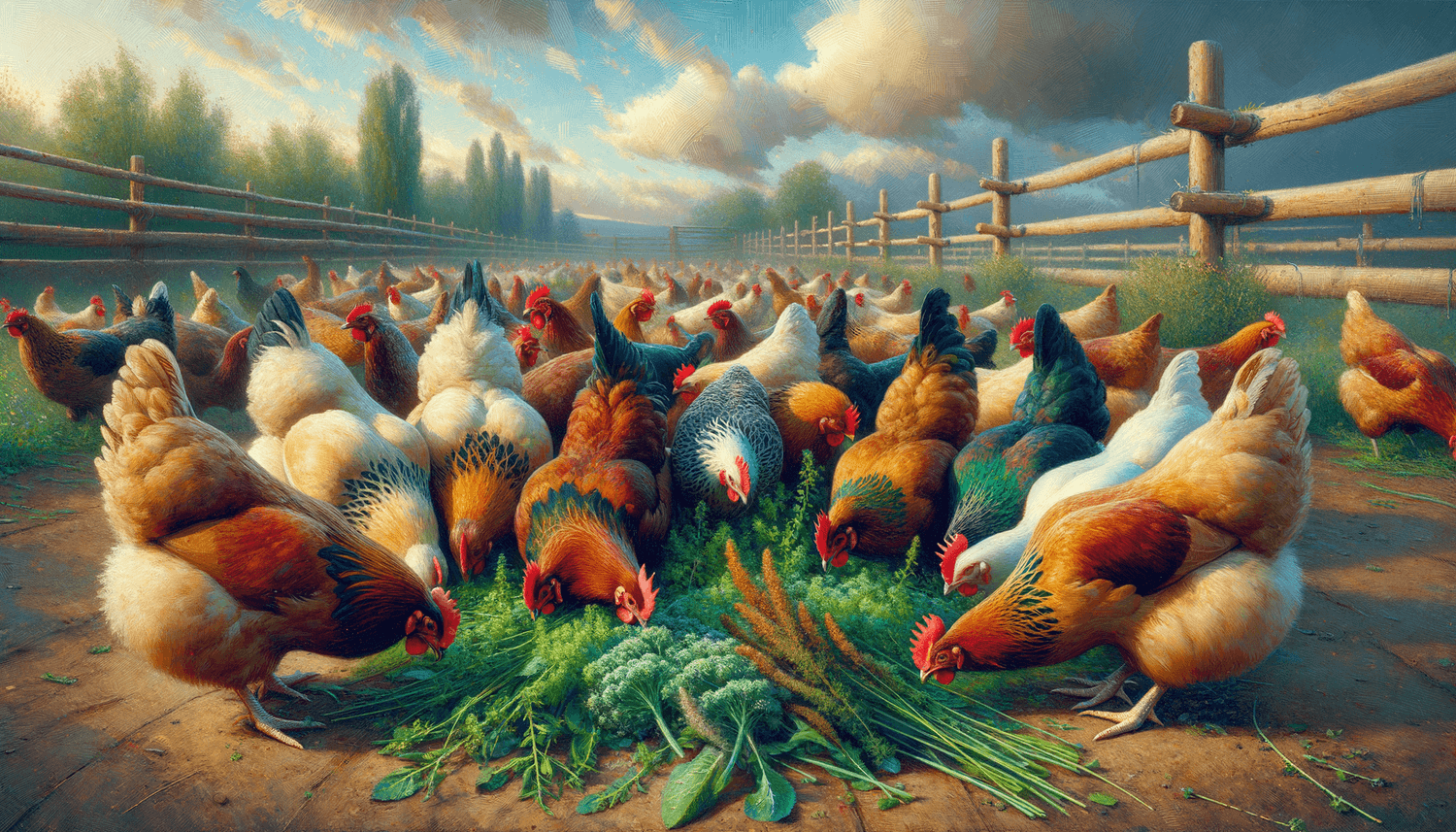Cluck, cluck! Have you ever gazed at your backyard chickens pecking around and wondered, “Can they eat weeds?” Well, gather your feathered flock and let’s crack open this egg-citing mystery together! In this blog post, we’ll tackle the question of whether or not chickens can enjoy a little green buffet from your garden, discuss the importance of maintaining a balanced diet, unveil some delectable (and maybe risky) weed options, highlight the nutritional value these unassuming plants can offer, and even share tips on how to serve up a delicious weed-themed feast for your cluckin’ good friends. Ready to embark on this weed-venture? Let’s fly!
Can chickens eat weeds?
Yes, chickens can safely eat weeds, as many weeds are nutritious and provide a natural, healthy addition to their diet. However, it’s essential to ensure that the specific plants consumed by your chickens do not contain toxic compounds. So, while most common weeds like dandelions and clover are perfectly fine, always verify the safety of less familiar plants before allowing your chickens to nibble on them.
A balanced diet for happy, healthy chickens
Just like humans, chickens need a balanced diet in order to thrive and lay tasty eggs. In order to achieve nutritional balance, a chicken’s diet should primarily consist of high-quality chicken feed, which provides the necessary vitamins, minerals, and protein for their overall health. Chicken feed should make up around 80-90% of their diet to keep them clucking happily and actively.
The remaining 10-20% of a backyard chicken’s diet can be a mix of tasty treats, such as fruits and vegetables, which serve as a perfect supplement to their main staple. These goodies offer additional nutrients and ensure mealtime stays interesting for your fine-feathered friends. Of course, it’s essential to always offer fresh, clean water and a supply of grit to aid their digestion, rounding out their optimal dining experience. Bon appétit!
Nutritional value of weeds for chickens.
Feeding weeds to chickens can offer significant nutritional value, as many weeds are packed with essential vitamins and minerals. For instance, dandelions and clover are extremely rich in calcium, potassium, and iron along with vitamins A, C, and K, all of which contribute to their overall health, egg production, and immune system support.
Besides vitamins and minerals, weeds also provide hydration for chickens, as they may retain moisture, especially just after a rain shower or the morning dew. This added hydration not only helps keep chickens cooler during hot summer days but also assists in their digestion.
Another benefit of feeding weeds to chickens is the fibrous content, which helps improve gastrointestinal health and digestion. Moreover, weeds can act as a natural probiotic, providing beneficial microbes that boost the immune system and aid in nutrient absorption. Since chickens are natural foragers and enjoy pecking around, allowing them access to common, safe weeds offers both physical and mental stimulation. This browsing activity helps reduce boredom and allows them to exhibit their natural behavior, making for more contented and relaxed backyard birds.
Nutrition table of weeds for chickens.
| Information | Description |
|---|---|
| Nutritional Value | Weeds provide vitamins A, C, and K, as well as minerals such as calcium, potassium, and iron. |
| Suggested Serving Size | Weeds should make up a small portion of a chicken’s diet. Aim for around 10%. |
| Safe Feeding Practices | Verify the safety of each weed before feeding, as not all weeds are safe for chickens to consume. |
| Preparation | Wash and remove any dead or rotting parts before offering to chickens. |
| Potential Risks | Some weeds may be toxic to chickens or contain pesticides, herbicides, or other harmful chemicals. |
| Hydration | Weeds retain moisture, providing hydration for chickens. |
| Digestion | Fibrous content from weeds improves gastrointestinal health and digestion. |
| Seasonal Availability | Weeds are more abundant during the spring and summer months but may be found throughout the year. |
| Other Benefits | Weeds can serve as natural probiotics and provide mental stimulation for foraging chickens. |
Identifying safe weeds for chickens
Helping your chickens enjoy the treats found in weeds starts with learning how to identify safe and potentially toxic plants. Some common safe weeds to offer your chickens include dandelion, clover, chickweed, and purslane. On the other hand, toxic weeds to avoid include nightshade, foxglove, and poisonous plants such as hemlock and lily of the valley.
It’s important to become familiar with the weeds in your area, and if in doubt, take the time to research or ask a local expert before letting your chickens feast. Make sure you only offer weeds that have not been exposed to herbicides, pesticides, or other harmful chemicals as these can pose serious health risks to your flock.
Preparing weeds for your chickens
Once you have identified safe weeds for your chickens, wash them thoroughly to remove dirt, insects, or any lingering chemicals. Removing any dead or rotting parts before introducing them to your chickens is essential. If feeding weeds on a regular basis, consider rotating the types provided to ensure a good mix of nutrients while keeping mealtime interesting for your backyard birds.
Monitor your flock’s health
Feeding weeds can offer health benefits and an enjoyable foraging experience for chickens, but it is always important to monitor your flock’s health. Watch for any signs of distress, unusual behavior, or changes in egg production after introducing new weeds, as these may signal a problem that requires intervention. If you notice any issues, consult with a veterinarian or poultry expert to ensure the continued wellbeing of your backyard companions.
Armed with knowledge about safe weeds, feeding practices, and the benefits they bring to your flock, you can feel confident in providing an exciting and nutritious treat for your backyard chickens. Enjoy the breeze, watch your chickens explore, and take pleasure in knowing you’re offering them a natural and enjoyable dining experience!

















